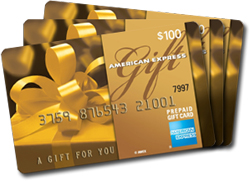In a previous blog, “Selling through B2B Reseller Channels”
I mentioned that sales personnel are interested in Money and that this is often
the best way to motivate them effectively in moving a manufacturer’s products
through the channels, communicating with them and promoting product sales.
So what are the issues surrounding a Rewards Program?
Get Management/Owner
Buy-in and Involvement
Without the support of an individual or individuals at the top
of the company, you’re dead in the water before you even start. You need their
agreement first before you do anything. Some distributors don’t allow any sort
of programs feeling that it may encourage their sales teams to sell the wrong
product.
Select the Target
Just because you have a Rewards Program in mind, doesn’t
mean you have to offer it blindly through your entire distributor network. Incentives
work best when targeted. Focus it on the customers you believe will perform the
best if this is implemented.. Knowing who you want to act and then structuring
a program to directly address their needs and wants will produce the best ROI.
Also be aware that certain countries may not even allow them
as they can be classed as an unfair business practice
Set Your Sales Goals
Set clear and reasonable sales targets so everyone,
internally and externally, knows what you want to achieve and what is expected
of them. Without this form of objective setting any Reward Program could be
seen as a sign of desperation. Make the goals sensible, data-driven and make
them a stretch for the Reseller.
Put a Limit on it
Not in terms of Rewards possible but the number of products
the program applies for. Make it simple to understand. If the participants get
confused, you lose. If they can’t repeat it back to you in one sentence then
you’ve got it wrong
Set the Right Award
Program
There are two types of rewards programs – points based and
money based.
If you go with a point-based incentive solution, the point
levels have to accumulate at rates fast enough that program participants can estimate
how soon they can redeem points for predefined rewards. The points themselves have to be seen as an
appropriate reward for the effort expended. The problem with this is that you have
to provide a sufficiently interesting set of rewards for the participant to
use. This can be time consuming in itself, although there are plenty of
companies on the web who will do this for you. The second issue is that you do
have to have a mechanism for showing the participant exactly how many points
they have on an ongoing basis and this can also cause logistical problems.
Personally, I always tend towards gift cards (AMEX, or Visa)
for several reasons – one, because it can be an immediate reward for the right
actions and activities in selling your products, and two, it is far easier to
manage especially in the early stages of implementing a Rewards Program.
Communicate
Frequently
You cannot over-communicate your incentive program. Tell
your participants what you’re going to do, when you’re going to do it, how
you’re going to do it and what’s in it for them. Then tell them again. Use
Newsletters and emails and tell them how well their peers are doing. Let them
do the comparisons themselves.
Involve Your Field
Sales Team
If you don’t involve your sales force, you will not be
effective. They are the face of your incentive program. Keep them up-to-date. Make
it as easy as possible for salespeople to explain both the mechanics and the
value of participating in your program.
Monitor and Adjust
Every initiative starts off with a bang, ramps up, coasts,
cools off and then needs to be re-energized. Anticipate and plan ahead for this
and prepare ideas, themes, special events, promotions, special offers and
varied communications to lift the energy level or your program when it hits a
lull.



No comments:
Post a Comment